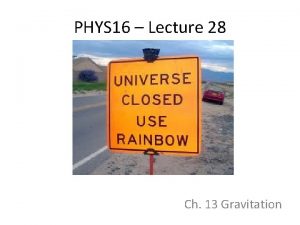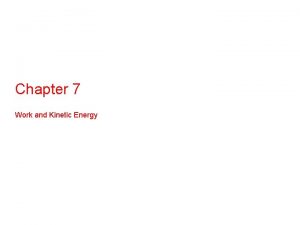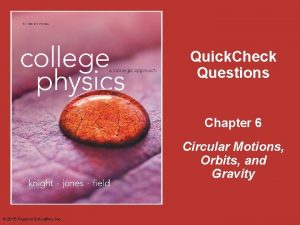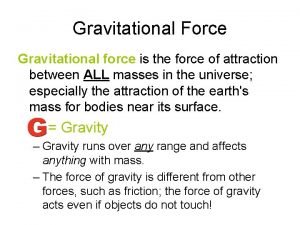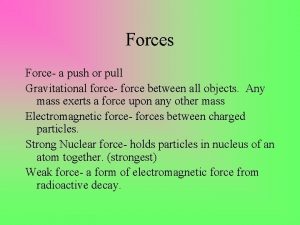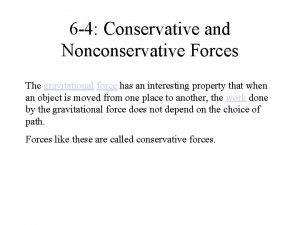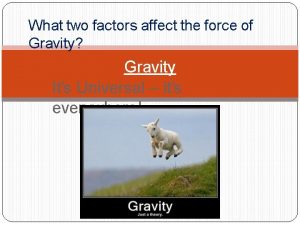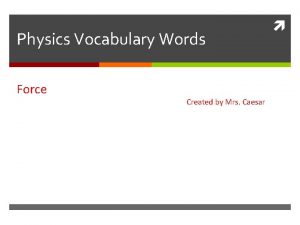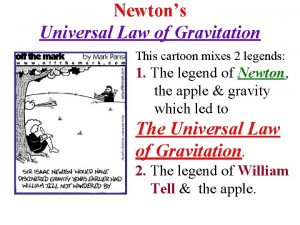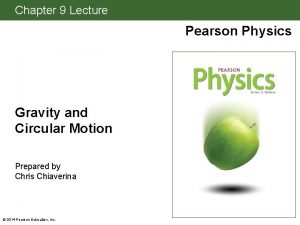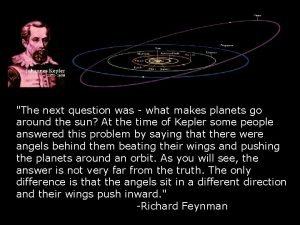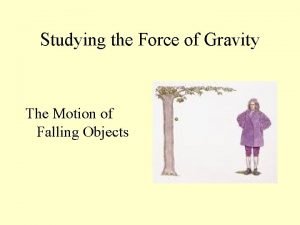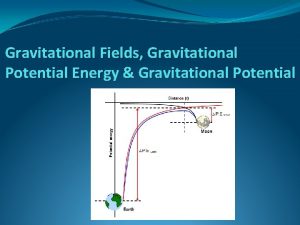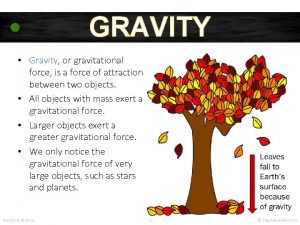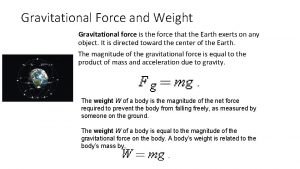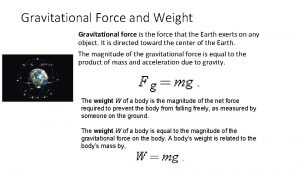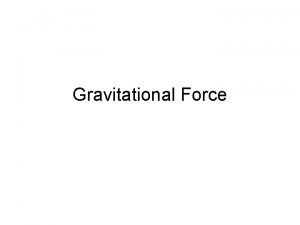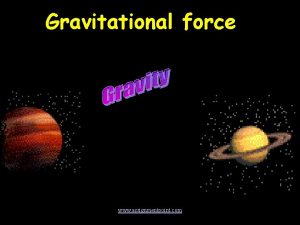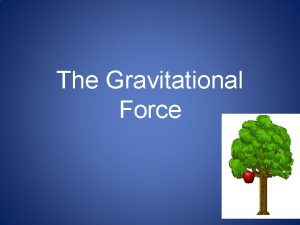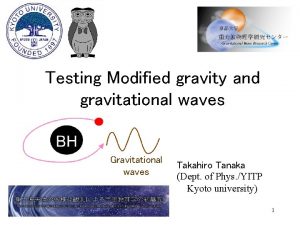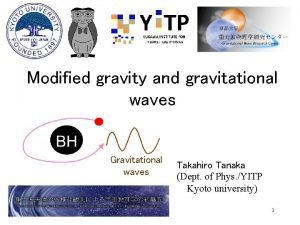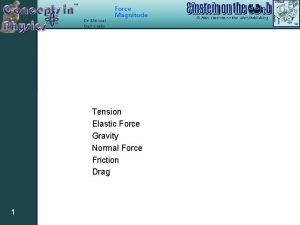Gravity Equation F force of gravity G gravitational












- Slides: 12

Gravity Equation F = force of gravity G = gravitational constant (6*10 -11) 0. 000006 M 1 = mass of body 1 M 2 = mass of body 2 S 2 = distance between M 1 & M 2 squared F= G M 1* M 2 S 2 Web

Gravity F= G M 1* M 2 S 2 1. The force of gravity is not effected by other bodies present. 2. The force of gravity is equal but oppositely directed. F=ma Newton’s second law

Web Gravity F= G M 1*M 2 S 2 F M 1 A 1 If the force is equal and opposite, then: M 2 = M 2 A 2 F = MA for both M 1 A 1 = M 2 A 2 M 2 is larger than M 1 so, A 1 must be larger than A 2 if they are equal. [Across a crowded room, you and an airplane]

Gravitational Constant G ~ 6*10 -11 F= G - a very small number 0. 000006 M 1* M 2 S 2 What is the attraction between you and the person next to you? What is the attraction between you and the earth?

Gravity F= G M 1*M 2 S 2 If masses stay the same, but the distance increases, how does the force of gravity change? M same = F< S increases

Gravity F= G M 1*M 2 S 2 If distance stays the same, but the masses increase, how does the force of gravity change? increase same = F>

Gravity Will a body always have the same mass if the volume remains constant? NO Same volume (size) Density may be different, so masses are different Venus (0. 95 radius of earth, density 0. 53)

Acceleration due to Gravity (g) The acceleration of a body arising from the earth’s gravitational pull. Units are ft/sec 2 or m/sec 2 At the earth’s surface g is: 9. 8 m/sec 2 or 32 ft/sec 2 (g) depends on position Web

Acceleration due to Gravity (g) A body falling will continue to accelerate until air friction causes the body to reach a terminal velocity. Acceleration due to gravity is independent of mass F=MA

The Beam Balance and Weight Known mass 1 kg ? unknown mass Gravity Weight = pull of gravity (a force) [ Will it work everywhere? on Earth, another planet? in space? ]

Weight F= G M 1*M 2 S 2 Weight is the force of gravity between me and the earth. 1. How can I reduce my weight? A) move scales to second floor? B) move to the mountains?

Web Gravity and the Earth F= G N M 1*M 2 S 2 -Rotates west to east -Velocity greater at equator, zero at poles -Centrifugal force bulges earth at the equator S N diameter S -So, the earth is slightly squashed at equator -equator diameter is 42 km > than pole diameter
 Centripetal force and gravitational force
Centripetal force and gravitational force Hooke's law vector form
Hooke's law vector form A coin sits on a turntable
A coin sits on a turntable What is gravitation
What is gravitation Gravitational force push or pull
Gravitational force push or pull Gravitational force is conservative
Gravitational force is conservative What two factors determine the force of gravitational pull?
What two factors determine the force of gravitational pull? Gravitational force is a
Gravitational force is a Newton's third law cartoon
Newton's third law cartoon Symbol for the gravitational force
Symbol for the gravitational force Applications of gravitational force
Applications of gravitational force Kepler law formula
Kepler law formula Does everything fall at the same speed
Does everything fall at the same speed
